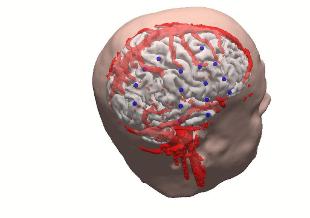- Epilepsy, the expert: overcoming prejudices and reticence
Share
February 10, 2020 In the world, 65 million people suffer from epilepsy, 500 thousand in Italy alone.The causes of this neurological pathology can be different and in 30% of cases the
disease is drug resistant. But now an innovative anti-neuroinflammatory therapy
promises, depending on the case, to delay the appearance of the epileptic crisis or to support the action of traditional drug therapy with the possibility, for the future, of reducing the dosage of antiepileptic drugs and therefore its multiple side effects.
"Epilepsy is a pathology that affects the neuron in the front line, but many studies, including recent studies, have shown that neuroinflammation, through the hyper reactivity of non-neuronal cells, can act by supporting and amplifying the epileptic crisis - explains Livio Luongo associate professor of pharmacology at the University of Campania Luigi Vanvitelli in Naples - Neuroinflammation has been shown to play an important role in the genesis and progression of epilepsy; it is also accompanied by a high degree of localized oxidative stress, capable of promoting the appearance of the epileptic attack ".
"Anti-neuroinflammatory therapy can have different effects depending on whether it is epilepsy caused by brain damage such as head injury or stroke or central nervous system infections, where there is an important neuroinflammatory component prior to epileptic episodes, or epilepsy with genetic and metabolic causes. In any case it has been shown that the ultramicrocomposite Pealut (palmitoylethanolamide co-ultramicronized with Luteolin) is able to intervene on the neuroinflammatory process by modulating the action of non-neuronal cells and the effect
oxidative stress thanks to the antioxidant action of luteolin ".
So what are the effects of therapy in different cases of epilepsy? "In the case of
drug-resistant epilepsies, or epilepsies in which the neuroinflammatory component may be the cause itself, the molecule may delay the appearance of the epileptic episode - continues the expert - In all other cases Pealut constitutes a pharmacological support to the antiepileptic drug, from which it often does not it can be ignored, facilitating its action which is no longer impeded by neuroinflammatory cells. The antiepileptic drug will therefore work on the activity of the neuron and the support drug will reduce the neuroinflammatory process obtaining an improvement in the treatment. Therefore - concludes Prof. Luongo - the opportunity that opens up for the future is the reduction of the dosage of antiepileptics and the consequent multiple side effects ".

